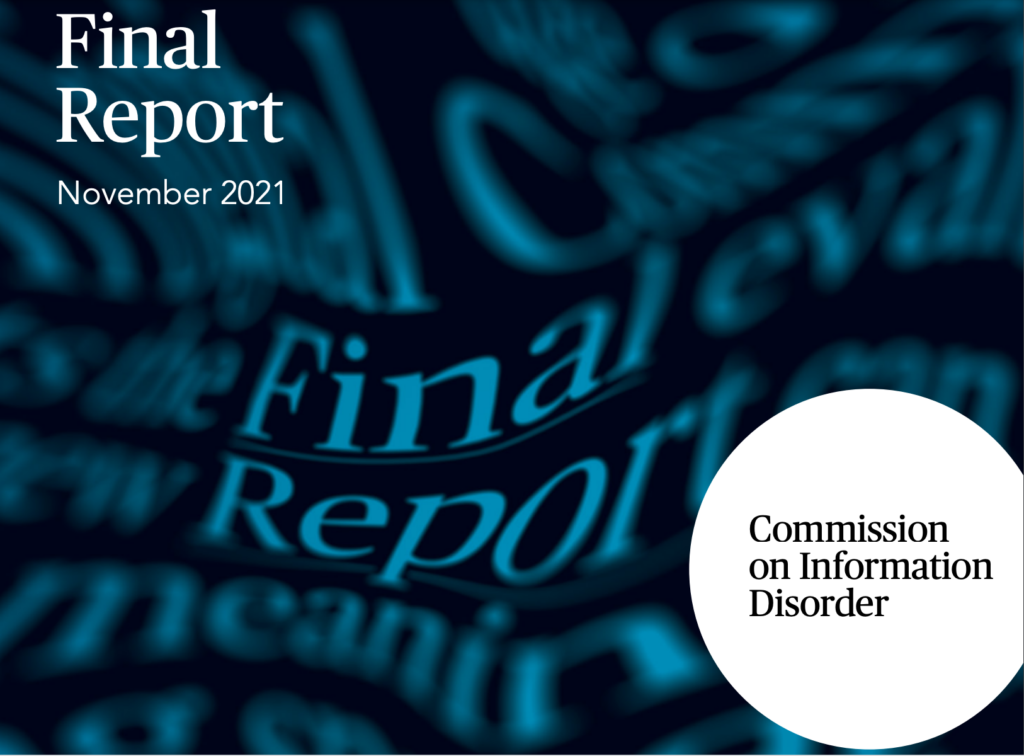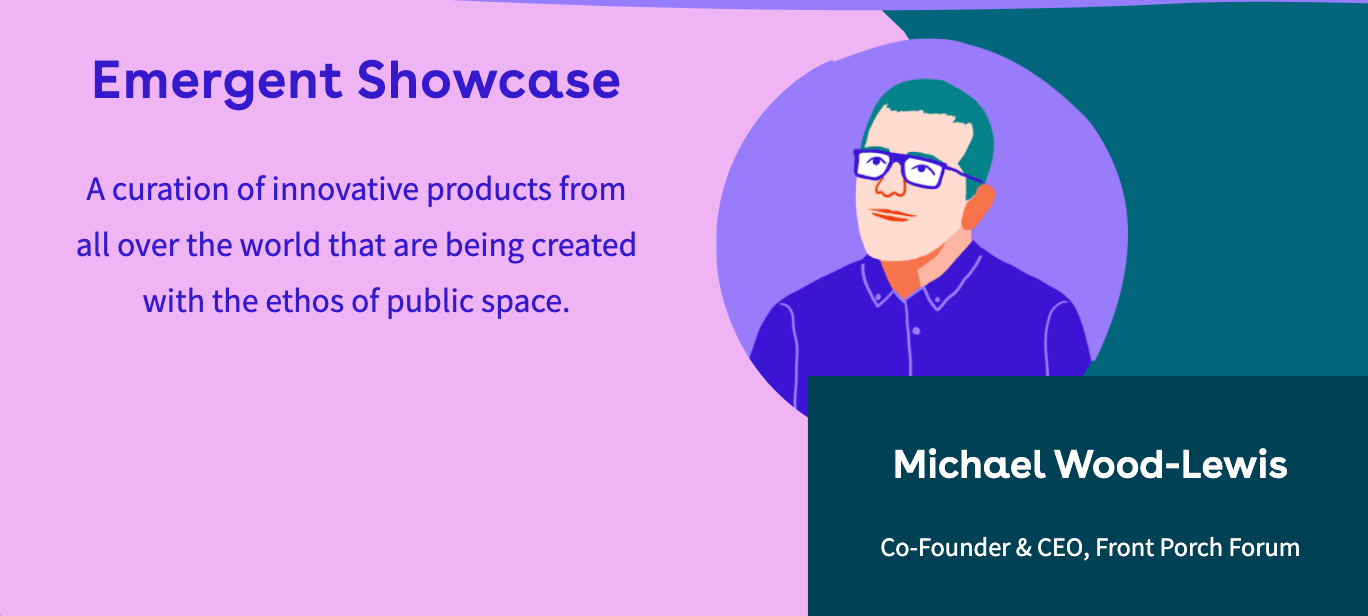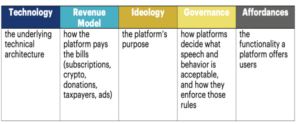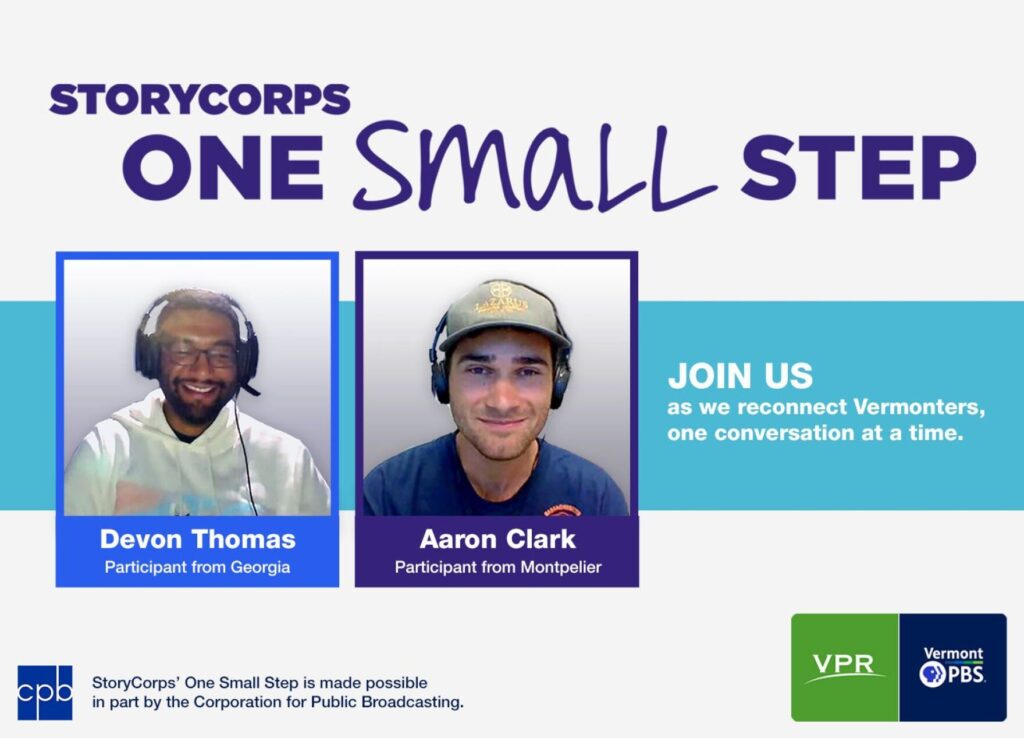Category Archives: Online Civility
Solving Social Media’s ‘Local Paradox’
A new article in a Stanford University journal underscores various failures of Big Tech social media, and highlights Vermont’s own Front Porch Forum as a better way.
In the bowels of social media giants, like NextDoor and Facebook, live online spaces for local social networks to take hold (e.g., a neighborhood based Facebook group).
One might think a healthy form of social connection would come from these local online networks because they’re grounded in real-world relationships and physical space — you could literally bump into that posting’s author on your way to school drop off — but in practice, as this article points out, local social media can be even more toxic than global platforms. It’s dubbed the ‘local paradox‘.
The solution to this local paradox, they say, is to build networks that are values-driven, closely moderated, trusted, and local. Further, they share Front Porch Forum as a leading example.
A Kinder, Gentler Social Network
Big Tech and social media giants are under the microscope more than ever. Front Porch Forum continues to draw attention from news outlets as the more friendly alternative among sites that are meant to connect us.
Julia Angwin, Editor-in-Chief of The Markup, a popular publication investigating Big Tech, recently spoke with FPF’s co-founder Michael Wood-Lewis to learn more about how FPF keeps conversations neighborly and kind, while other social media sites seem to be losing civility.
Read the full interview here.
Healthy Digital Discourse
The Aspen Institute just issued its Commission for Information Disorder final report. We’re humbled to see Front Porch Forum recognized among a short list of approaches that are making real progress instead of feeding the spread of disinformation. The commission includes celebrities like Craig Newmark, Katie Couric and Prince Harry, along with an array of national experts.

FPF was held as an example of how to
“Develop and scale communication tools, networks, and platforms that are designed to bridge divides, build empathy, and strengthen trust among communities.“
FPF on Reimagining the Internet
Front Porch Forum‘s Co-founder, Michael Wood-Lewis, joined Ethan Zuckerman of Reimagining the Internet for an interview on running a healthy online community. Reimagining the Internet is a podcast that talks to experts in the field about what isn’t working with social media and how it can be improved. Jimmy Wales, the founder of Wikipedia, was also a recent guest of the podcast.
Give this great interview a listen!
For more on FPF check out FPF in the news!
Extra! Extra! FPF in the news!
Front Porch Forum is gaining some remarkable national attention these days. It’s an honor to be featured and recognized for our community building work, local focus and approach to digital tech. Check out some of the cool things that have been happening with FPF in the media below:
 “To Thrive, Our Democracy Needs Digital Public Infrastructure”
“To Thrive, Our Democracy Needs Digital Public Infrastructure”
Jan. 5, 2021
By: Eli Pariser and Danielle Allen of Politico
“…what we need are not just information services with a mission-driven agenda, but spaces where people can talk, share and relate without those relationships being distorted and shaped by profit-seeking incentive structures. We are just beginning to see glimpses of what these spaces might look like. One model is Vermont’s Front Porch Forum…two-thirds of Vermont households are on the Forum, and many Vermonters find it a valuable place for thoughtful public discussions…
…Built into the premise of this work is the notion that what’s needed is not one publicly owned Facebook clone, but an armada of localized, community-specific, public-serving institutions that can serve the functions in digital space that community institutions have served for centuries in physical places. Vermont’s Front Porch Forum and other examples show this is possible, even in the digital age.”
Read the full article here.

“Imagining Our Social Media Future”
Jan. 15, 2021
Hosted by: Brooke Gladstone of WNYC Studios and featured on NPR
Brooke Gladstone and Eli Pariser explore the limitations mainstream social media places on real communities. Welcoming and thought-provoking digital spaces make community building more possible. How the spaces are designed will decide how we participate in them.
“I’m inspired by examples like Front Porch Forum in Vermont, which is kind of like a slow social network…it’s very heavily moderated local email list that you can post to [daily]. If you post something and it’s against the rules and norms it gets sent back to you with a nice little note saying like “hey can you try saying this a different way.” The once-a-dayness is really important because you have to have a lot of stamina and energy to sustain an argument across 14 days of back-and-forth. What’s interesting about Front Porch Forum is it’s used by a huge portion of households in Vermont. Local representatives in Vermont are on Front Porch Forum because they know that’s where the issues of the day are being discussed and addressed.”
Listen to the full, 15-minute discussion here.
“Replacing Facebooktwittergooglamazonsoft”
Highlights from the New Public Festival, held Jan. 12-14, by Micah Sifry
“Given all the problems with civic engagement today widespread misinformation, heightened polarization, online mobs (and their offline manifestations), fears of censorship by over-empowered tech bros, social isolation, increased mood disorders from online addiction, the list goes on and on–should we fix the tech platforms, or should we start over?”
 Front Porch Forum co-founder, Michael Wood-Lewis, presented alongside dozens of other tech innovators and project leaders working to shape the future of tech spaces. For more information on who participated in this year’s New Public Festival or to sign up for more information, visit here.
Front Porch Forum co-founder, Michael Wood-Lewis, presented alongside dozens of other tech innovators and project leaders working to shape the future of tech spaces. For more information on who participated in this year’s New Public Festival or to sign up for more information, visit here.
“These 14 principles could help big platforms create healthier social media”
![]() Jan. 20, 2021
Jan. 20, 2021
By: Steven Melendez
“The Civic Signals founders say they have had some discussions with big tech companies about their work. But they also see the signals as useful to smaller and nontraditional operations, including publicly operated civic forums and smaller platforms like the Vermont-run Front Porch Forum, a network of neighborhood-based sites.
“We have a realistic view of what can happen in traditional tech-startup world, and we don’t think that all of these public functions can be served just by private companies alone,” Pariser says. ‘There’s a role for public infrastructure as well.'”
Read the full article here.
“Could Tax Dollars Fund Smaller, Better Social Media?”
 Feb. 2, 2021
Feb. 2, 2021
By: Stephen Gossett
“…Users will need a brigade of options “localized, community-specific, public-serving institutions that can serve the functions in digital space that community institutions have served for centuries in physical places,” as Pariser wrote in Politico.
One model that Pariser has pointed to is Vermont’s Front Porch Forum, a 20-year-old local forum/digital newsletter that has become an unlikely model for online communities.”
Read more here.
Also, check out more commentary from Eli Pariser from Dec. 2020 on an episode of Your Undivided Attention from the Center for Humane Technology here.
“Local Logic: It’s Not Always a Beautiful Day in the Neighborhood”
 Technology and the way people use it has the power to unite people or pull them apart. Ethan Zuckerman and Chand Rajendra-Nicolucci of Knight First Amendment Institute at Columbia University took a closer look at platforms that bring communities together on a local level, only to find that some designs work better than others.
Technology and the way people use it has the power to unite people or pull them apart. Ethan Zuckerman and Chand Rajendra-Nicolucci of Knight First Amendment Institute at Columbia University took a closer look at platforms that bring communities together on a local level, only to find that some designs work better than others.
Platforms that operate more like social media, where individuals can post whatever they want instantaneously, can lead to heated, attacking commentary, false accusations, or misinformation. This kind of content may cause civil discourse to devolve and it may disrupt the establishment of ties within a community.
On the other hand, Front Porch Forum is an example of a local platform that has systems in place to help keep conversations civil and community-minded, fulfilling its mission of helping neighbors build community. From Rajendra-Nicolucci and Zuckerman’s piece:
“That organic growth was key to maintaining one of the key differences between FPF and Nextdoor: proactive moderation. FPF uses a team of moderators that review each post to make sure it adheres to the site’s code of conduct (which bars personal attacks and behavior “counter to its community-building mission”) before it’s posted. That helps to keep the discussion friendly and constructive… We believe a platform that takes governance seriously, is designed for a specific purpose, and has ties to the communities it serves can be successful anywhere.”
The authors also share the criteria by which they evaluate various platforms. These platforms operate on a local level broken into neighborhoods, towns, or city blocks.

“Getting local social media right is important. Local platforms present an opportunity to strengthen social capital and civic life. At their best, they can keep residents informed about local issues, encourage civic organizing and action, and facilitate new connections and greater understanding.”
Read the full article on Knight First Amendment Institute at Columbia University’s blog here.
The Choice for Vermont Candidates: Facebook or Buy Local?
 Does your favorite candidate for the legislature or statewide office support Vermont businesses? How about racial justice? If both answers are yes, then consider asking them if they are spending their ad budgets with Vermont media — or with Facebook.
Does your favorite candidate for the legislature or statewide office support Vermont businesses? How about racial justice? If both answers are yes, then consider asking them if they are spending their ad budgets with Vermont media — or with Facebook.
Why does this matter? Because sending Vermont dollars to Facebook is not “buying local” and runs counter to racial justice. Facebook gives a voice to the highest bidder, even if that voice is sharing inflammatory hate speech.
Here in Vermont and around the nation, people are rallying to lift their communities by supporting the local economy and standing up against racism.
One example is Buy Local. This is a collection of efforts to encourage people to use the dollars they spend on everyday necessities with local businesses, building community wealth along the way. In fact, Vermont’s own state government is funding dozens of Buy Local initiatives this summer across the state.
Another case is #stophateforprofit. This fast-growing global campaign asks “all businesses to stand in solidarity with our most deeply held American values of freedom, equality and justice and not advertise on Facebook’s services in July.” Click on the link above to see how Facebook is on the wrong side of history, putting corporate profit ahead of American’s core values.
 Corporations of all sizes are taking the pledge. Among many others, Verizon, Starbucks, Coca-Cola, Unilever, Honda, Patagonia, Levi’s, and Ben & Jerry’s, have pledged to stop advertising with Facebook for the month of July.
Corporations of all sizes are taking the pledge. Among many others, Verizon, Starbucks, Coca-Cola, Unilever, Honda, Patagonia, Levi’s, and Ben & Jerry’s, have pledged to stop advertising with Facebook for the month of July.
In this context, Front Porch Forum joins Seven Days and other Vermont media in calling on candidates for statewide office or the legislature to take a stand too. It’s time to stop sending Vermont money to Silicon Valley billionaires who have repeatedly failed to use their power to curb hate. It’s time to ask Vermont candidates to put their money where their values are – with local media that put Vermont values first.
Many of the dozens of small locally owned media businesses in Vermont are struggling financially. Now is the time to step up, for those who can, and Buy Local with their advertising dollars. Where do your candidates stand on this choice?
About Blog
Ghost of Midnight is an online journal about fostering community within neighborhoods, with a special focus on Front Porch Forum (FPF). My wife, Valerie, and I founded FPF in 2006... read more
Post Categories
- Uncategorized
- PDF2009
- Calendar
- Northeast Kingdom
- podcast
- Peer Rental
- Localization
- Big Tech
- Events
- PDF2007
- Web Traffic
- Google AdSense
- Pay It Forward
- Elections
- berkmansunlight
- Maps
- Video
- Upstate New York
- Coupons
- Wildlife
- Mobile
- Viral Marketing
- Raffle
- Crisis Response
- Donations
- Lost & Found
- Real Estate
- College Students
- Gratitude
- Social Responsibility
- Orton Family Foundation
- Start ups
- Make It Your Own Awards
- Online Civility
- Clay Shirky
- Newspapers
- Humor
- How To Use FPF
- Online Classified Ads
- Peer Reviews
- Best of FPF
- Politics
- Community Management
- Economic Development
- Local Reviews
- Case Foundation
- Borrow and Lend
- Neighborhood Watch
- Good Government
- Small Business Advertising
- Citizen Journalism
- e-Vermont
- Democracy
- Local Search
- Knight Foundation
- Burlington
- MacArthur Fellows
- Civic Engagement
- Social Media
- social capital
- Social Networking
- Vermont
- Neighborhood
- Community Building
- Local Online
- Front Porch Forum





 I love to bake sourdough bread. Do you know of someone who might really enjoy a surprise gluten-full delivery? (Yes, it can be you/your family, haha). Reply to me directly and I’ll drop some off on their/your stoop in a couple days, at no cost. Then, to continue the chain, you post about some thing or some (socially distant) task you can offer, and it goes and goes. If you’d like to play, please read the guidelines below.
I love to bake sourdough bread. Do you know of someone who might really enjoy a surprise gluten-full delivery? (Yes, it can be you/your family, haha). Reply to me directly and I’ll drop some off on their/your stoop in a couple days, at no cost. Then, to continue the chain, you post about some thing or some (socially distant) task you can offer, and it goes and goes. If you’d like to play, please read the guidelines below.


